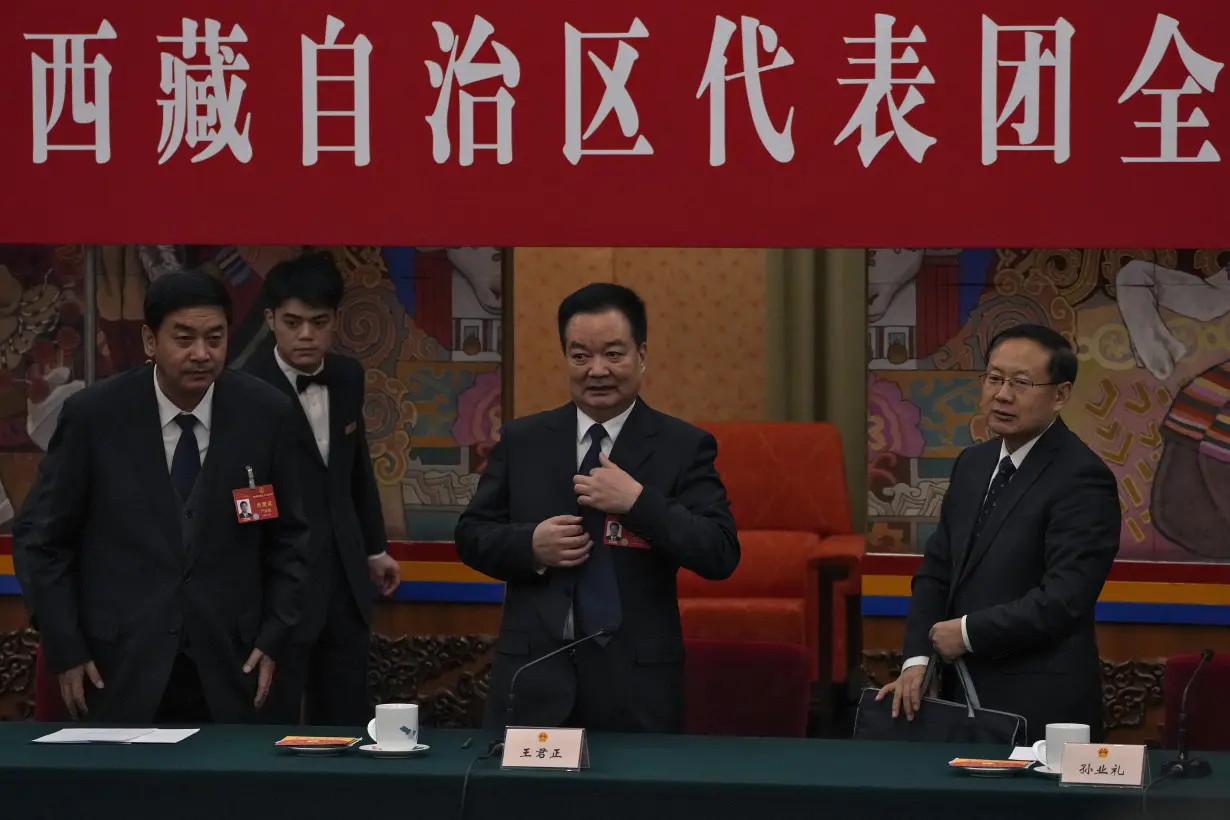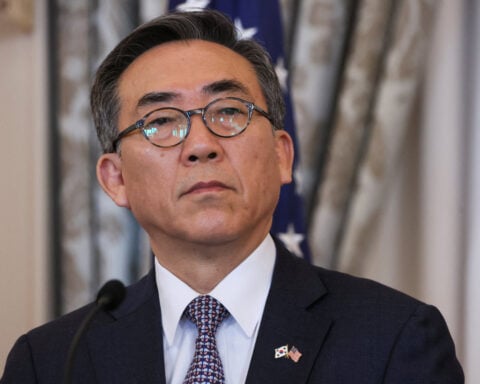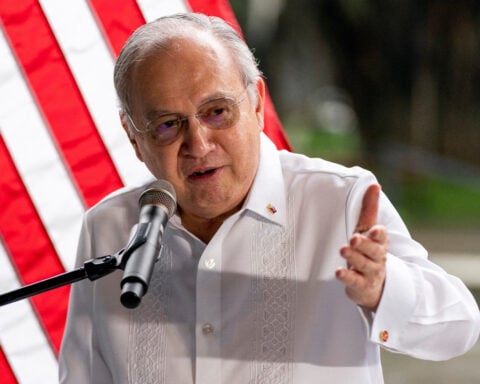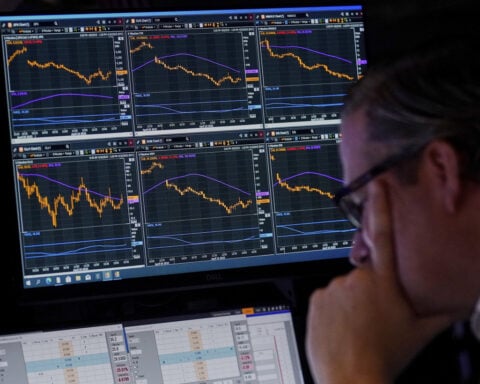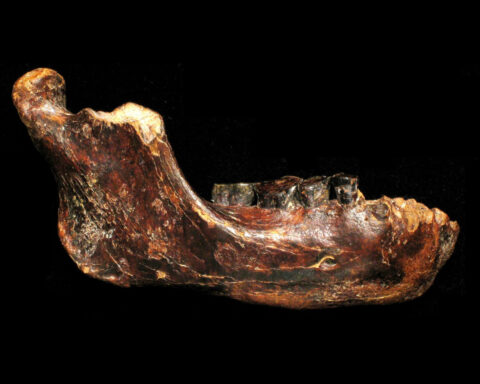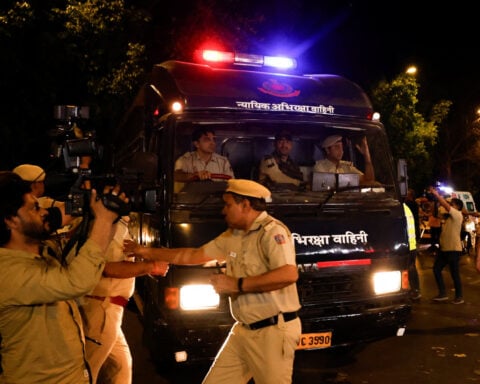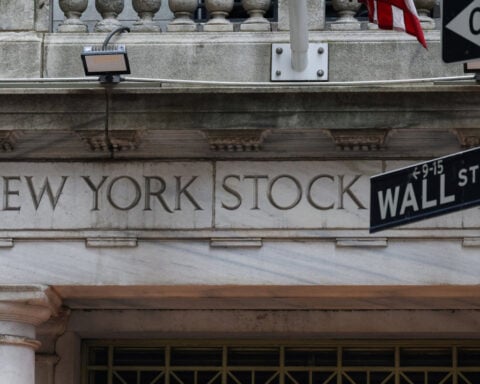BEIJING (AP) — This year, China’s national legislature resumed its annual in-person meetings without many of the restrictions that had been imposed since the pandemic. No more bubbles, multiple COVID-19 tests or social distancing.
Officials say China is back to business, but in practice, the meetings have become even more tightly scripted to convey Chinese leader Xi Jinping’s message, leaving little room for the spontaneity and open engagement the sessions once offered before COVID-19.
The Two Sessions, as the meetings are called, lasted just one week — half their length before the pandemic. Delegates no longer mingle with journalists in open-door sessions as they used to just a few years ago. Reporters were in some instances physically barred from approaching officials.
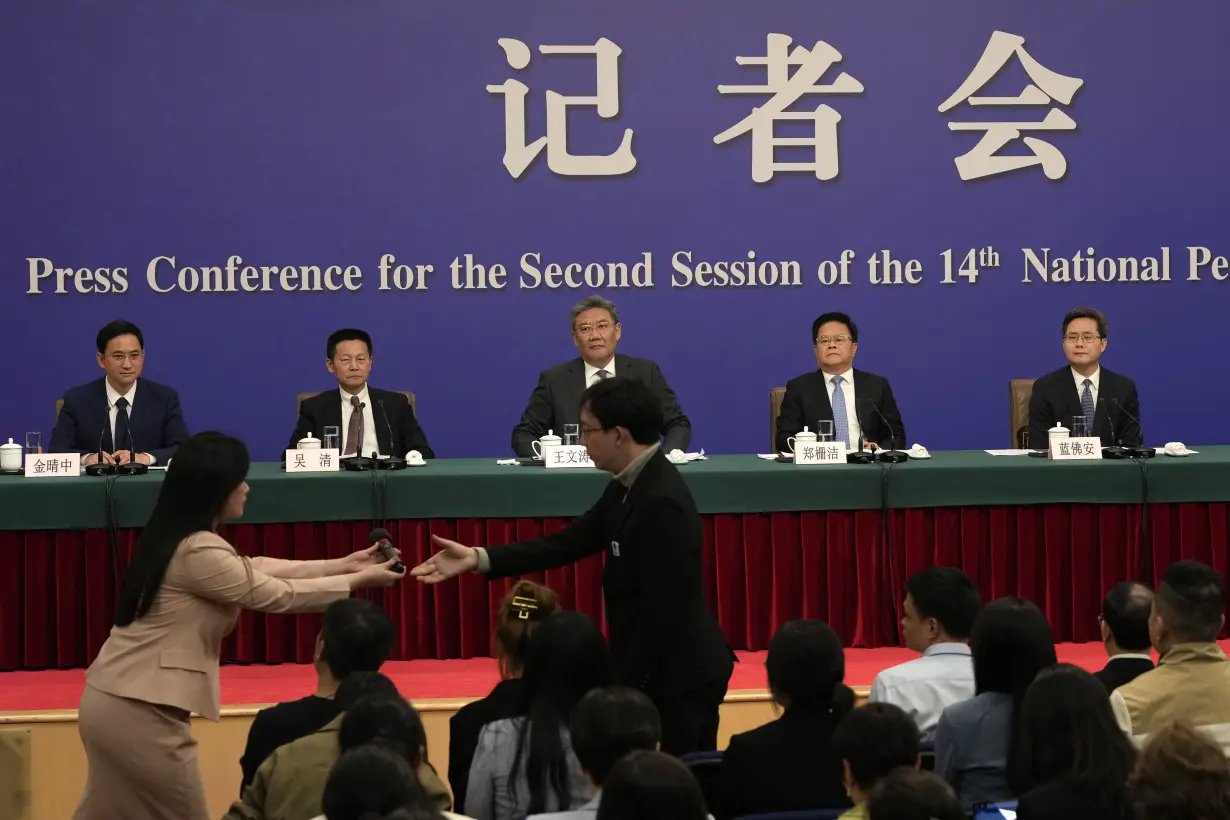
And this year, breaking with three decades of tradition, officials said they would no longer be hosting the premier’s news conference, removing a once-a-year opportunity for journalists to ask questions to a top Chinese leader.
The changes reflect just a sliver of China's transformation under Xi, its most powerful leader in decades. Xi has removed term limits, sidelined rivals and appointed a crew of loyalists to run the country. Along with his consolidation of power, the space for press freedom has shrunk drastically, leading many Chinese journalists to quit the industry.
“It’s part of a general tightening up in levels of accessibility that’s been reflected in all the other things that happened,” said Mike Chinoy, CNN’s former bureau chief in Beijing.
Though the Two Sessions have always been choregraphed to a certain degree, in the past they allowed direct interactions between journalists and politicians, a rare opportunity for the outside world to gain insight into China’s tightly controlled political system.
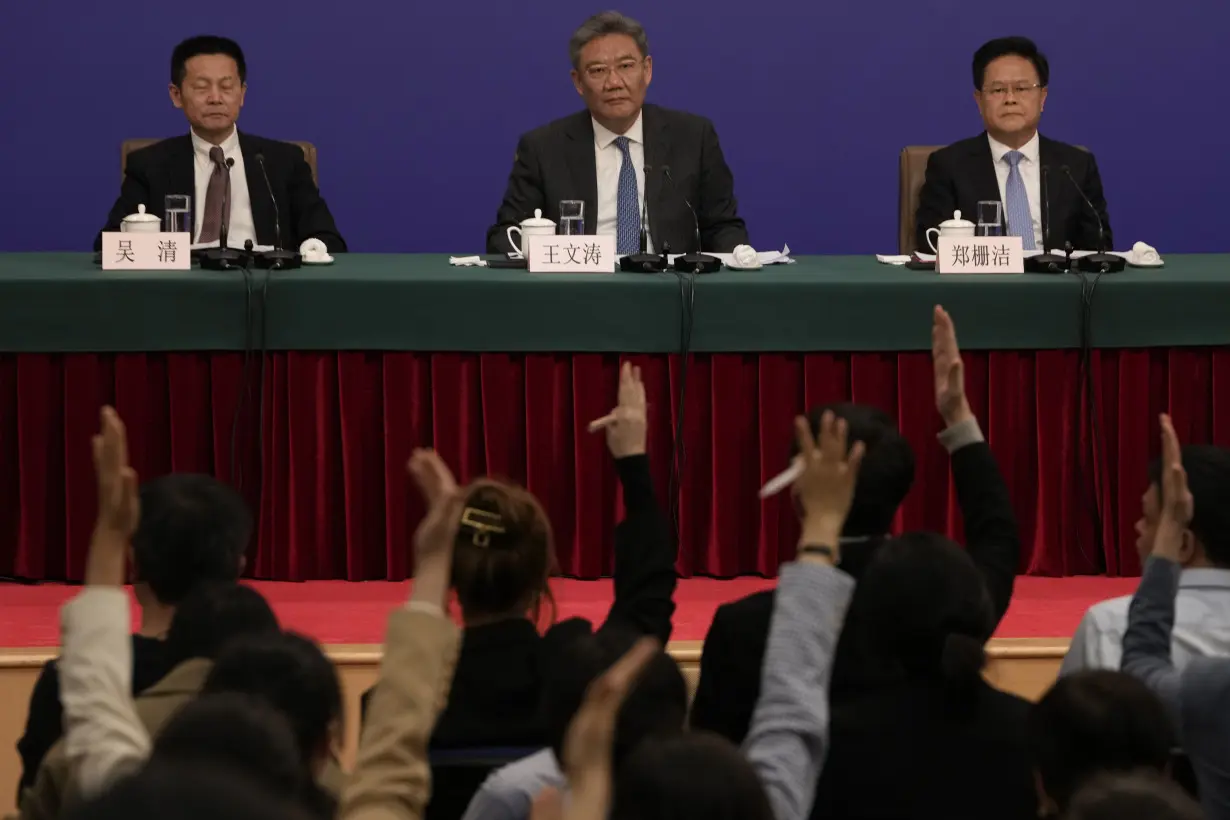
Journalists smoked cigarettes with representatives and traded banter at Beijing’s Great Hall of the People. Foreign media shouted unscripted queries, even on sensitive topics.
“(It) was for many years a singular Chinese forum where foreign and indeed local journalists had rare opportunities to ask impromptu questions of government officials,” usually at news conferences, said Richard McGregor, a former Financial Times correspondent in China. “You could also doorstop officials, who surprisingly often engaged.”
Even in recent years, journalists pressed top Chinese provincial leaders on sensitive issues. In 2018, a Wall Street Journal reporter asked Tibet’s top official about a Tibetan who set himself on fire to protest Beijing’s rule. In 2019, a Sky News correspondent asked Xinjiang officials about mass internment camps targeting the region’s native Uyghurs. In response, Shohrat Zakir, then Xinjiang’s governor, said that what the government called “educational training centers” would shrink and eventually disappear, generating headlines.
News conferences hosted by provincial leaders vanished during the pandemic. This year, they’ve resumed, but without the tough questions of the past. Instead, journalists asked about how Tibet planned to encourage tourism, or how Xinjiang will boost its economic development in the coming year.
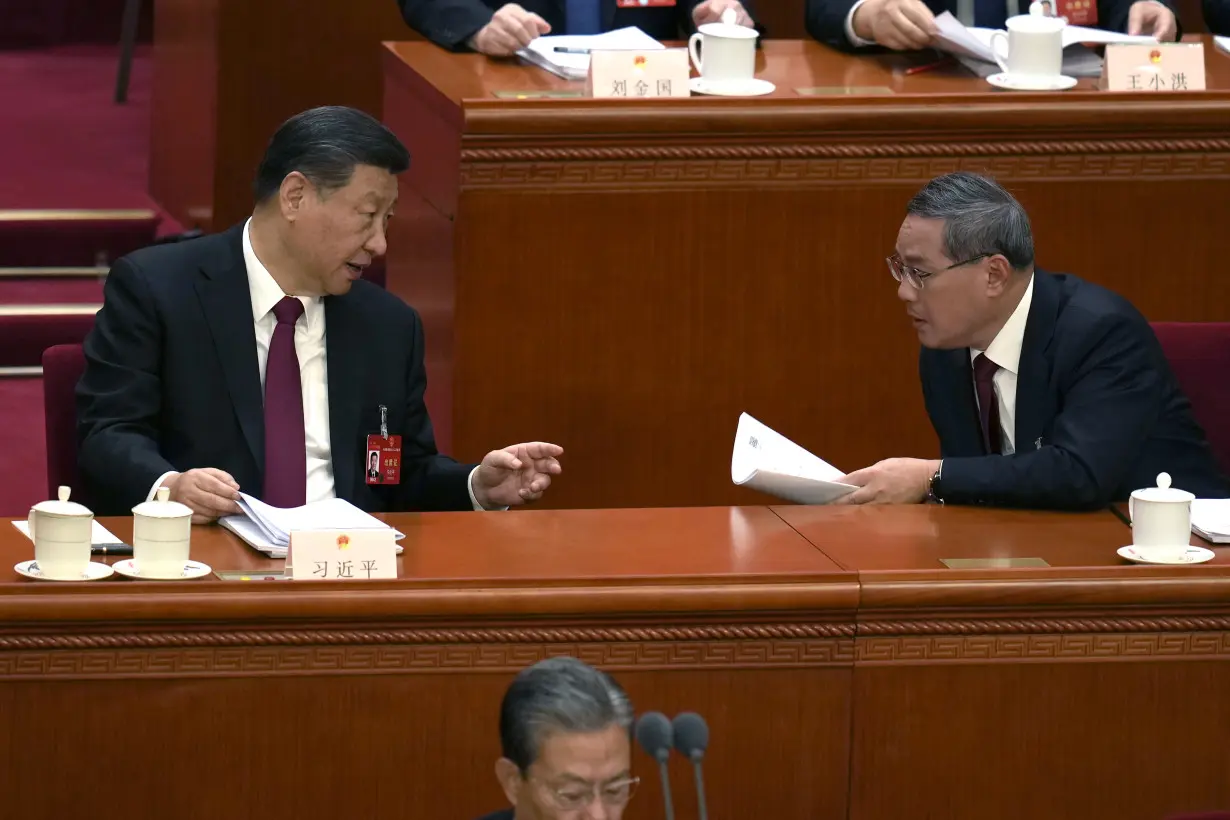
Though reporters were told the conferences were “open” question-and-answer sessions, questions were pre-screened. At the Tibetan news conference this year, a state-affiliated media reporter who raised her hand multiple times and did not get called on said she had to submit her questions in advance.
Those who tried to slip in questions off-script were barred, even manhandled. At a news conference about the economy and government policy last week, security personnel acted quickly to pull down a Chinese reporter who had stepped onto the stage at the end of the formal question-and-answer sessions, apparently to ask a question. Video of her attempt went viral.
Though China has long reviewed questions before news conferences, the practice has increased in intensity, Chinese journalists who’ve reported on past legislative sessions say.
A few decades ago, Chinese journalists could submit whatever questions they wanted. But over the years, it evolved to the point where they were assigned questions by officials to ask, said Rose Luqiu, a well-known journalist formerly with Phoenix Television, a state-owned broadcaster. The result, she says, is highly stage-managed.
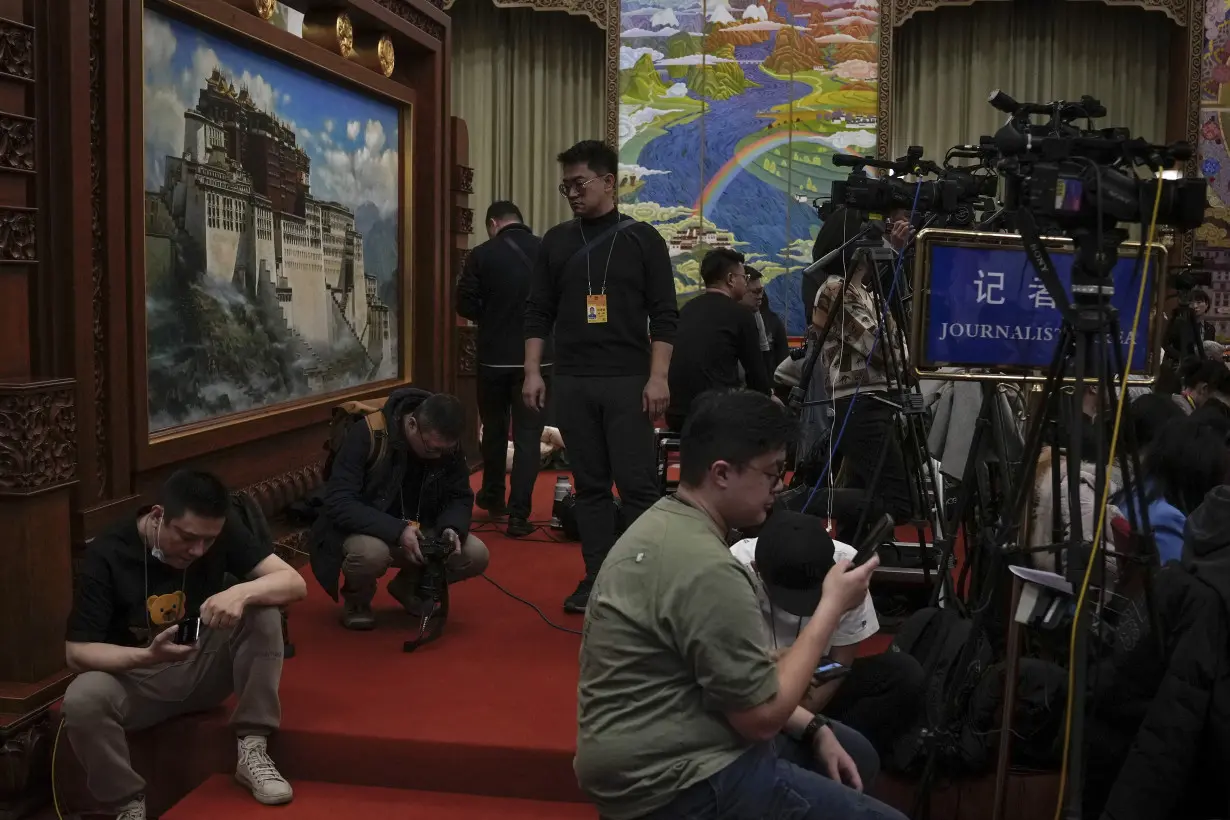
“You’d think that these journalists are like actors, and the overall form became like a display of PR,” Luqiu said.
China’s State Council Information Office, which handles media questions for the government, did not immediately respond to a request for comment.
These events were not always so tightly controlled.
Past leaders, such as Jiang Zemin, held interviews with foreign media, talking about Tibet and the crackdown on pro-democracy protesters on Beijing's Tiananmen Square with 60 Minutes, the U.S. TV program known for investigative reports.
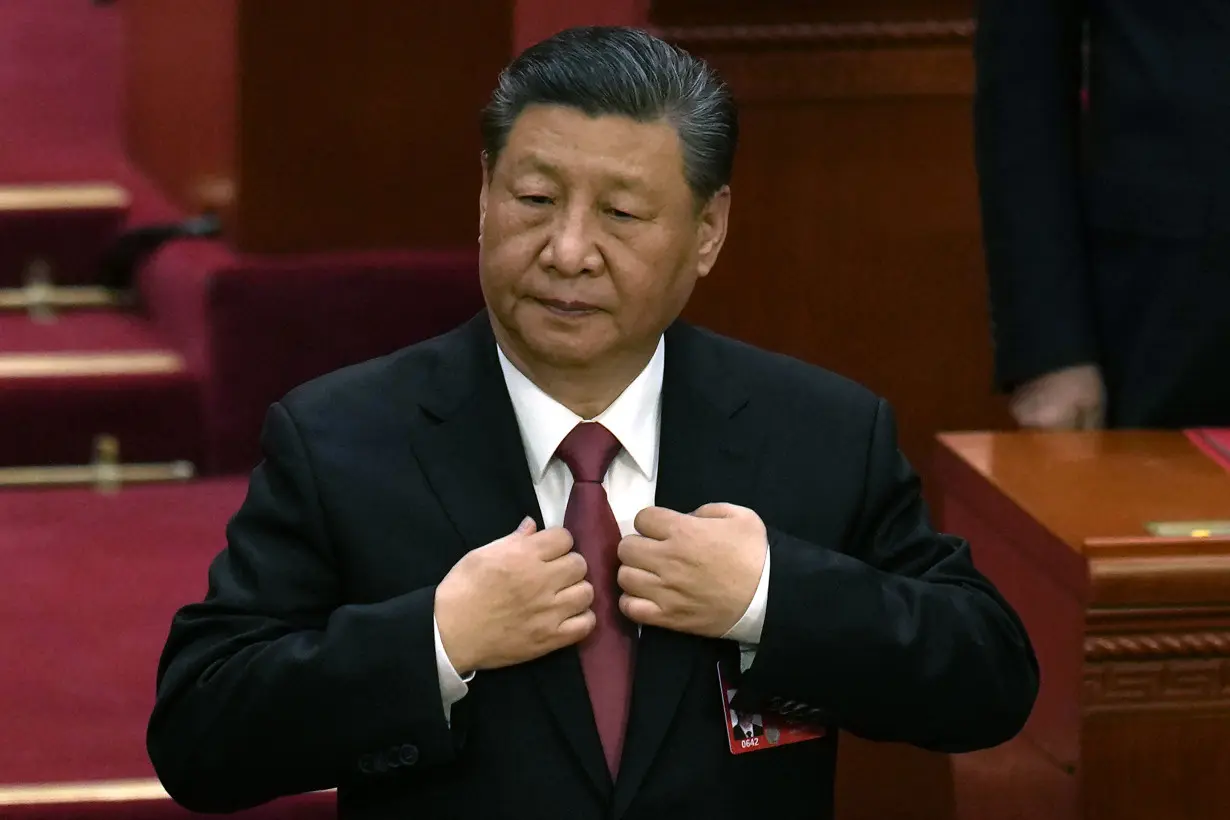
Before that, foreign reporters were able to grill the former general secretary of the Communist Party, Zhao Ziyang, said Chinoy, the former CNN Beijing bureau chief.
“He took questions without anyone vetting anything,” Chinoy said. He asked the secretary a question about Tibet, which had just experienced violent riots in September 1987.
“I got an earful of the party line,” he said of Zhao’s response. But he said he hasn't had such unfettered exchanges since then.
In contrast, Xi hasn’t answered a question from an American journalist in nearly a decade. At this year’s pared-down proceedings, instead of critical questions there was praise -– even of Beijing’s decision to cancel the premier’s news conference.
“The government’s cancellation of this press conference is in line with our country’s movement towards a more frugal lifestyle,” said Huang Chunqiu, a National People’s Congress representative, nodding enthusiastically as she spoke. “Everyone should be diligent and thrifty, and in the new year, everyone should unite and forge ahead for a better life.”

 Trump has begun another trade war. Here's a timeline of how we got here
Trump has begun another trade war. Here's a timeline of how we got here
 Canada's leader laments lost friendship with US in town that sheltered stranded Americans after 9/11
Canada's leader laments lost friendship with US in town that sheltered stranded Americans after 9/11
 Chinese EV giant BYD's fourth-quarter profit leaps 73%
Chinese EV giant BYD's fourth-quarter profit leaps 73%
 You're an American in another land? Prepare to talk about the why and how of Trump 2.0
You're an American in another land? Prepare to talk about the why and how of Trump 2.0
 Chalk talk: Star power, top teams and No. 5 seeds headline the women's March Madness Sweet 16
Chalk talk: Star power, top teams and No. 5 seeds headline the women's March Madness Sweet 16
 Purdue returns to Sweet 16 with 76-62 win over McNeese in March Madness
Purdue returns to Sweet 16 with 76-62 win over McNeese in March Madness
